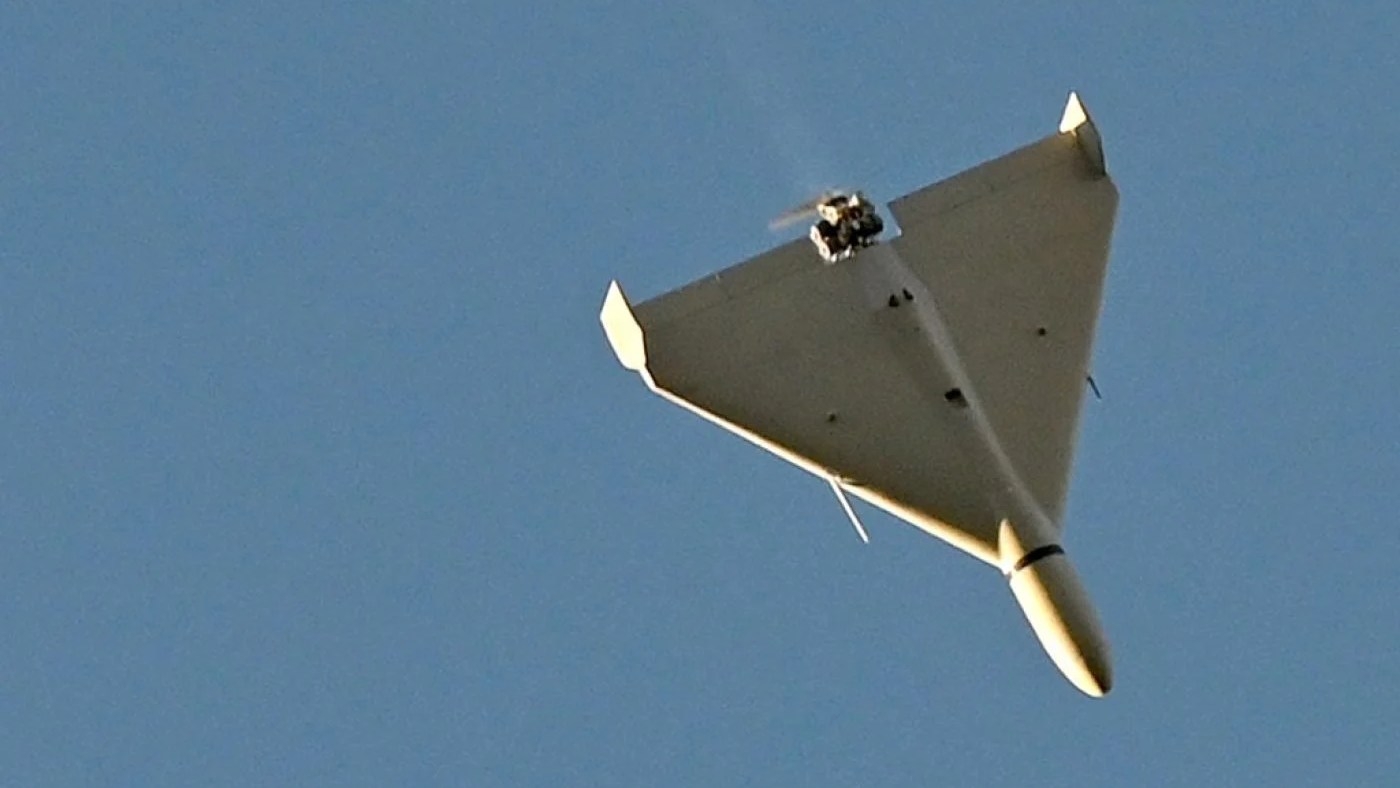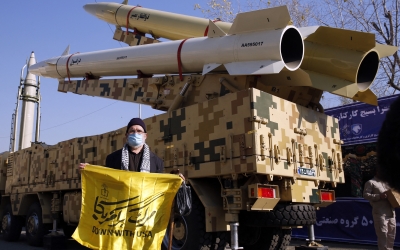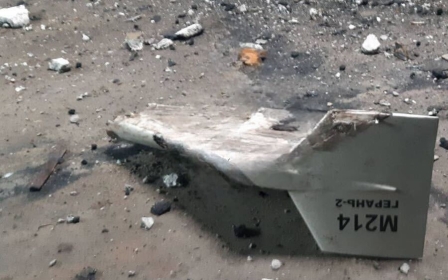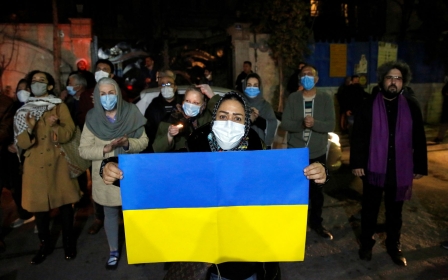Ukraine war: Russia attacks Kyiv with suspected Iranian-made 'kamikaze' drones

Russia has reportedly used Iranian-made drones in its latest bombing campaign on Kyiv, Ukraine's president said on Monday, a claim rejected by Tehran.
Volodymyr Zelensky said in a message shared on Telegram that "kamikaze" suicide drones and missiles were “attacking all of Ukraine” on Monday morning and Sunday night.
The Ukrainian defense ministry said in a tweet that its forces "shot down 37 Iranian Shahed-136 drones".
Kyiv's mayor Vitali Klitschko posted a photo purportedly showing the wreckage of one of the drones used on Monday.
New MEE newsletter: Jerusalem Dispatch
Sign up to get the latest insights and analysis on Israel-Palestine, alongside Turkey Unpacked and other MEE newsletters
Several blasts rocked central Kyiv and other Ukrainian cities early on Monday, sending people into shelters during the morning rush. There were no immediate reports of casualties.
The attack comes a week after Russia launched its heaviest aerial bombardment against Kyiv and other Ukrainian cities since the start of the war in February.
Iran denied that it had supplied Russia with drones to use in Ukraine, while the Kremlin has not commented on the reports. Ukrainian Foreign Minister Dmytro Kuleba called on Monday for EU sanctions on Iran.
“The published news about Iran providing Russia with drones has political ambitions and it is circulated by western sources. We have not provided weaponry to any side of the countries at war,” Iran’s foreign ministry spokesperson Nasser Kanaani said during a weekly press conference.
EU foreign policy chief Josep Borrell said on Monday that the bloc would be looking for “concrete evidence about the participation (of Iran in the Ukraine war).”
Last week, two diplomats told Reuters that Iran could be subject to more European sanctions in the future if the reports are proven to be true.
EU ministers are set to discuss the use of Iranian-made drones by Russian forces in Ukraine at a ministerial meeting in Luxembourg later on Monday.
Iran has reportedly already delivered Mohajer-6 and Shahed-136 combat drones to Russia. Although Iran denies sending Russia any military hardware, several images of both types of drones have emerged from Ukraine.
Last week, Iranian military instructors, believed to be affiliated with the elite Islamic Revolutionary Guard Corps, were reportedly present on the ground in Ukraine training Russian troops on how to use the "kamikaze" Shahed-136 drone.
According to Ukraine's Centre for National Resistance, Iranian military personnel were brought by Russia to the occupied regions of Kherson and Crimea.
Shahed-136 drones were reportedly used outside Kyiv to target a residential building last week.
Kyiv downgrading relations with Iran
Iran and Russia have long held good relations and have been partners in Syria's war over the past decade, while Kyiv also maintains diplomatic relations with Tehran.
However, following reports of the use of Iranian-made drones on the battlefield, Zelensky downgraded diplomatic relations with Iran by withdrawing Ukraine's ambassador's accreditation in Kyiv.
Ukraine began expelling Iranian students also in response to the alleged attacks.
Iranian students told Middle East Eye that Ukrainian immigration officials said their visas would not be extended because Iran was sending drones and personnel to Russia.
"The immigration officer behaved very angrily with us and told us our visa wouldn't get extended because of 'the drones and the military officers your country sends to train Russians'," one student told MEE.
"'You should be responsible for your government's activity'," he quoted the officer as telling the students.
Middle East Eye delivers independent and unrivalled coverage and analysis of the Middle East, North Africa and beyond. To learn more about republishing this content and the associated fees, please fill out this form. More about MEE can be found here.





